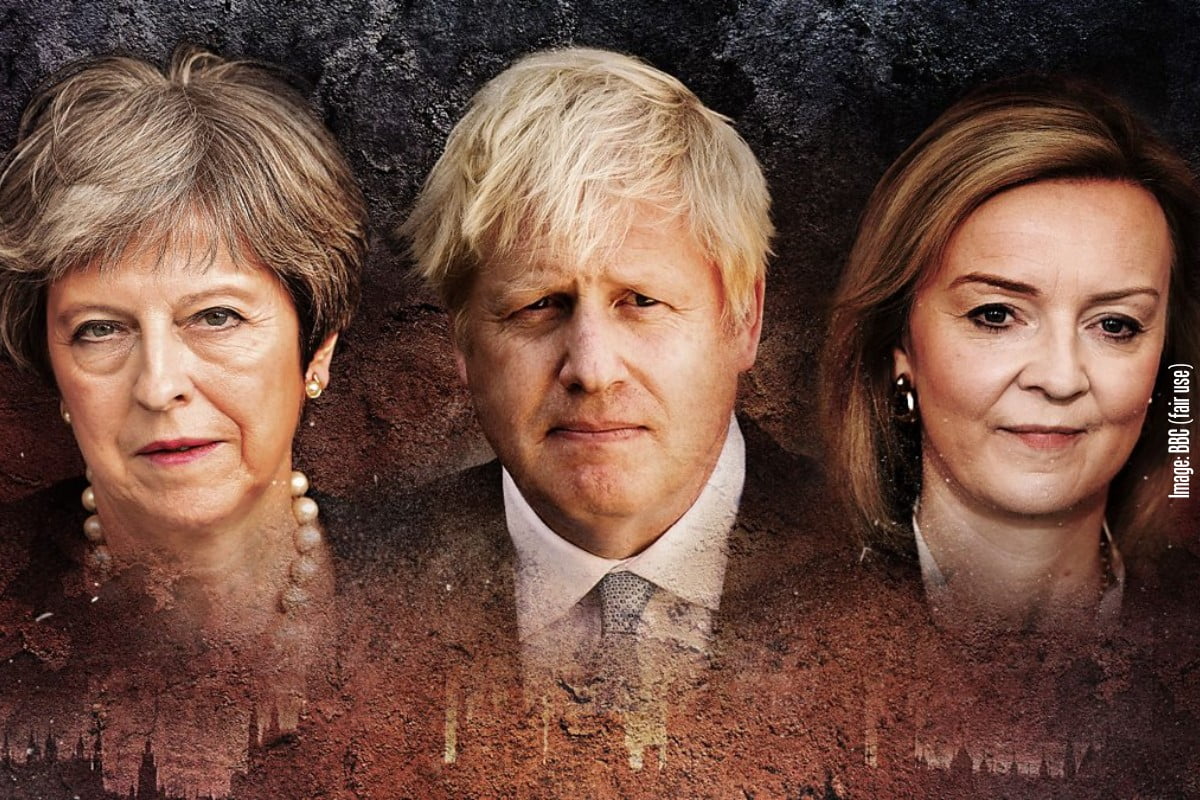In between news updates about the imperialist slaughter in Gaza, and regal announcements about the Tories’ agenda for the year ahead, the public has been treated to a drip-feed of scandalous revelations from the ongoing inquiry into the government’s handling of the COVID pandemic.
Testimony from witnesses, including key figures at the heart of Whitehall, has revealed what an utter pantomime – both farcical and tragic – Downing Street was during this period.
But the evidence presented in these hearings only confirms what most of us already knew: both from first-hand experience of the disaster that played out at the time; and from subsequent stories about boozy lockdown parties, corrupt procurement practices, and other cynical and criminal decisions by Tory ministers.
Furthermore, such blunders have by no means been constrained to the pandemic. Successive Tory administrations have been characterised by sleaze and scandal, as the party and its leaders degenerate in tandem with the decline of British capitalism.
Calamity
In this context, Laura Kuenssberg’s recent BBC documentary series State of Chaos is worth a watch.

The Beeb’s former political news editor follows the thread of British politics over the last seven years, showing the trail of carnage and mishaps of the Conservative Party and its MPs.
Using a wealth of news footage and talking-head interviews, Kuenssberg scrutinises the regimes of May, Johnson, and Truss – from the Brexit vote up to Truss’ humiliating resignation.
The documentary clearly holds a liberal outlook, suggesting that these calamitous years of Tory governance were simply a result of individual poor leadership. But in fact, the chaotic nature of Westminster is inherent to bourgeois parliamentary ‘democracy’ in an epoch of capitalist crisis.
May
In the week following the EU referendum and David Cameron’s resignation, the only Tory leadership candidate remaining, tasked with carrying out Brexit, was the firm ‘Remainer’ Theresa May, who became “prime minister by default”.
Without the trust of the rabid Tory Brexiteers, May forged her first cabinet from an even split of both Leavers and Remainers. Rather than providing balance, however, this divide would only widen, creating political instability that would express itself two years later in her downfall.
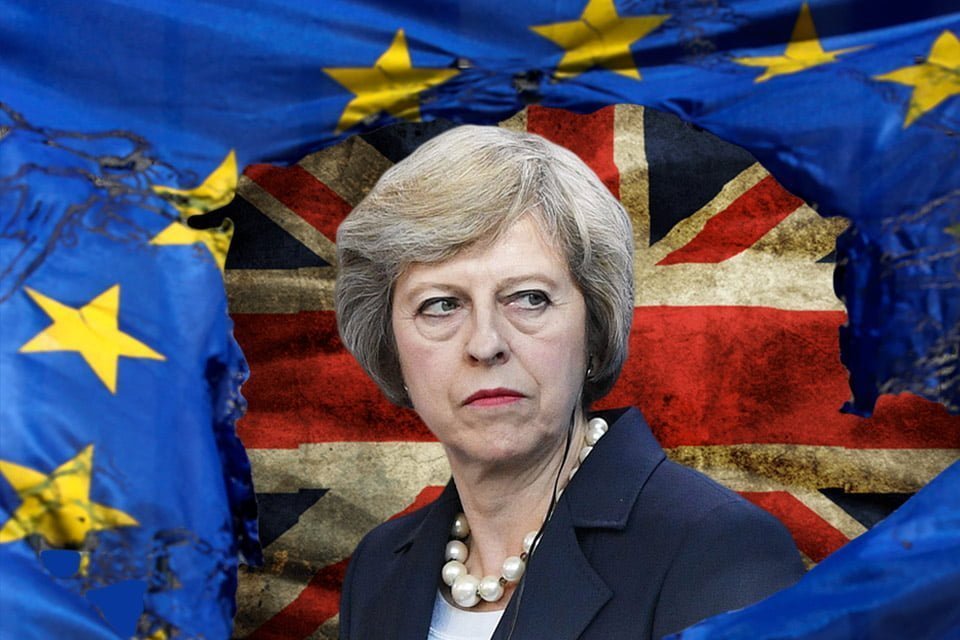
Lacking a clear majority, May called an early general election. However, a series of mishaps during the election campaign, which could have been taken from an episode of The Thick of It, resulted in a narrow Tory victory. And the PM was left clutching at straws.
Any Brexit plan alienated her from both camps: too soft for the hards, and too hard for the softs. This led to “civil war” within the Conservative Party. Opportunists such as Boris Johnson resigned, and Brexit proposals were instantly vetoed by Remainer MPs, paralysing parliament.
Johnson
Ultimately, only May’s resignation could resolve this stalemate, in favour of either a clear Remainer or Brexiteer successor. By this point, however, the jesters had taken over the court. And a demagogic Johnson-led Brexit government was inevitable.
Unlike May, who attempted to appease both sides of her party, Kuenssberg describes Johnson’s approach as one of “divide and rule”, with the aim of carrying through Brexit by any means.
In the series’ second episode, the presenter discusses and exposes the secret plan hatched up by Boris, together with his Machiavellian chief of staff, Dominic Cummings, to force through a no-deal Brexit.
Remarkably, this scheme involved Johnson going behind the backs of his own cabinet, while simultaneously shutting down Parliament, in order to prevent his Brexit plans from being blocked.
Ultimately, this strategy fell at the final hurdle, as opponents brought in the Queen and the courts to thwart Boris’ manoeuvres.
In concerned tones, the documentary discusses how this event exposed the fragility of British democracy. But in truth, history shows that the British ruling class will happily turn towards ‘strongman’ demagogues like Churchill, Thatcher, and Johnson when it suits their interests.
This turbulent episode set the tone for the rest of Johnson’s premiership.
Scandal
In the wake of the 2019 election, superficial commentators described Johnson’s government as monolithic and unchallengeable. But as the Marxists highlighted at the time, from the start, Boris’ administration had dynamite built into its foundations. This was a colossus with feet of clay.
The cracks first began to show with the government’s mishandling of the pandemic. As the current inquiry has highlighted, Johnson ridiculed and undermined the dangers of COVID, leaving the country woefully unprepared.
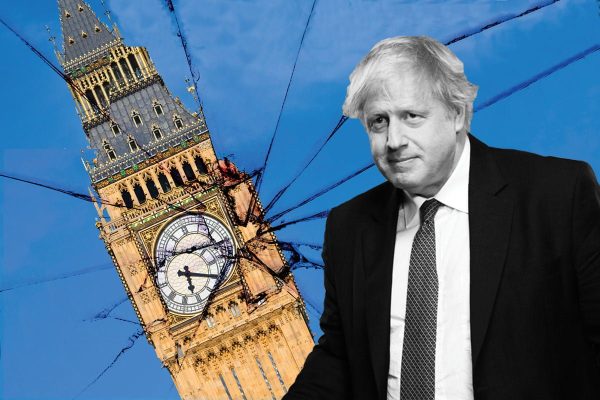
Deluded and hubristic, the Tory leader supported a ‘herd immunity’ approach, suggesting that the best strategy for the virus was to “let it rip”.
Faced with catastrophic warnings from public health experts, Boris suddenly U-turned and called for a ‘stay at home’ order. Meanwhile, money was thrown at big business in order to prop up British capitalism, paving the way for the cost-of-living crisis and the dire state of the UK economy today.
In the following months, a torrent of scandals emerged from Downing Street: from Cummings illicit trips during lockdown; to Rishi Sunak’s absurd ‘eat out to help out’ policy; to outsourcing cronyism surrounding the test-and-trace system and PPE; to the #partygate affair that prepared the way for Johnson’s departure.
Eventually, there was no way out for the beleaguered Tory leader but to step down.
Truss
The race for Boris’ successor was fought between ex-chancellor Rishi Sunak and Liz Truss, by this point a zealous Brexit-convert and fanatical Thatcherite.
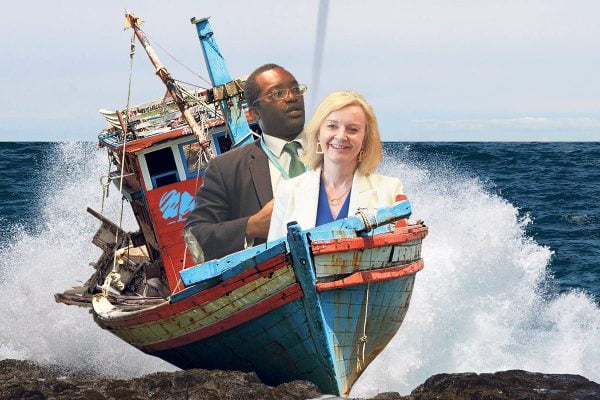
Boris’ supporters rejected Sunak, who was accused of betraying his former next door neighbour with his earlier resignation from Johnson’s cabinet. Instead, the Tory ranks put their weight behind Truss, not expecting her to survive for a mere six weeks as prime minister.
Truss filled her cabinet with her own clique, removed leading civil servants, and pushed for a reckless libertarian economic programme. But in the end, her ‘mini budget’ to slash taxes proved to be calamitous – destabilising the British Pound and the wider UK economy, and in turn the government.
The PM attempted to scapegoat her chancellor, Kwasi Kwarteng. But any authority she had quickly evaporated. And so, another one bit the dust.
Establishment in crisis
Kuenssberg’s documentary ultimately focuses on the damage and turbulence caused by individual figures within the Tory Party. But what it fails to explain is that the chaos surrounding these individual politicians is a reflection of the cracks running through the entire British establishment and its system.
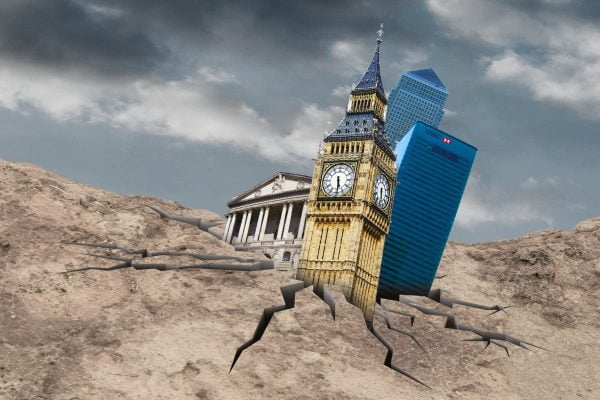
“Not for nothing has it been said of the British imperialists that they do their thinking in terms of centuries and continents,” Leon Trotsky once wrote. But accompanying the decline and decay of British capitalism over the last century, the myopic careerists and upstarts who now preside over ‘the Mother of Parliaments’ are incapable of setting policy beyond a single term.
The fall of the Empire; decades upon decades of underinvestment in industry; and years of capitalist crisis and Tory austerity: all this has produced the Britain we see today – ‘the sick man of Europe’.
This crisis of British capitalism and its institutions will not be solved by a Starmer government, nor by any establishment party attempting to operate within the confines of the bosses’ system and bourgeois democracy.
Under capitalism, there is no parliamentary salve to this crisis. Only a socialist revolution can turn things around for the working class in Britain, and create a society that genuinely operates in the interests of ordinary people.

